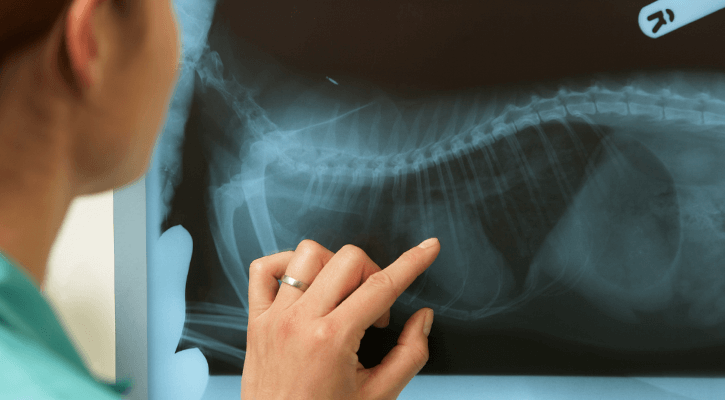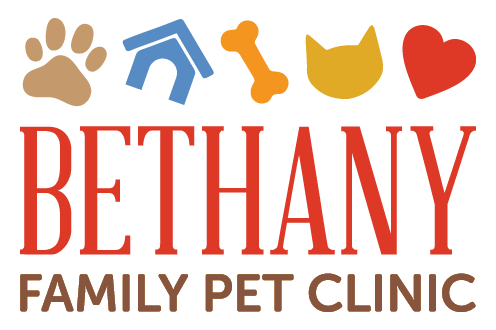Diagnostics

Veterinary diagnostic imaging creates composites of the internal body used to discover disease or injury. Digital imaging technologies allows x-rays to be sent to access to board-certified veterinary radiologists, guaranteeing the highest quality of care for our patients.
Digital Radiographs
Radiographs, or x-rays, use electromagnetic radiation directed towards the body to highlight objects within. These popular tests can detect a number of abnormalities including skeletal fractures, soft tissue damage, foreign bodies and dental disease. Radiography remains one of the most popular and accurate non-invasive diagnostic tools in the veterinary industry.
Ultrasounds
An ultrasound is a powerful diagnostic tool that creates a real-time image of an animal’s body. This composite reveals important information about internal processes including the circulatory, skeletal and gastrointestinal systems, helping identify disease, blockages and internal injury.
A pet ultrasound works by broadcasting high-frequency sound waves that reflect off your pet’s internal structures. A small probe held against the skin collects the returning signals to create an image of the internal body, most commonly used to examine abdominal organs like the stomach, kidneys, liver, spleen and gallbladder. An echocardiogram, or ultrasound of the heart, provides precise information about heart valves, blood flow, chamber size and contractions. This tool is essential when assessing overall heart health and treating cardiovascular disease. Because an ultrasound doesn’t require radiation, it is also used to monitor pregnancies and fetal health in breeding pets.
When used in conjunction with other diagnostics tools like radiographs (x-rays), ultrasonography can detect a broad range of abnormalities including cardiovascular disease, skeletal fractures, some forms of cancer, soft tissue damage, foreign bodies and organ disease. Completely painless and non-invasive, ultrasounds rank among the most precise diagnostic tools in the veterinary industry.
Depending on the complexity of the ultrasound examination needed for our patients many of our ultrasound examinations are performed by either a board certified veterinary internal medicine specialist or a board certified veterinary radiology specialist. These are performed on site so there is no need to transport your pet to another veterinary facility.
Echocardiography
An echocardiogram uses sound waves to map the heart, providing precise information about its valves, chambers, blood flow and contractions. This ultrasound technique is used to assess heart health and diagnose cardiovascular disease in pets as well as humans.
Benefits
Echocardiograms are an important and useful diagnostic tool in veterinary medicine. The procedure has many desirable benefits including:
- Non-invasive and completely painless
- Requires no sedation
- No exposure to radiation
- No adverse side-effects
- Highly effective and precise
An echocardiogram reveals detailed information about your pet’s heart including its size, shape, capacity, wall thickness, trauma locations, possible abnormalities and blood flow. With this information, your Bethany Family Pet Clinic veterinarian can precisely diagnose heart conditions like congestive heart failure, injury, congenital defects and arrhythmias.
Echocardiograms are scheduled primarily as a screening tool, helping diagnose the source of heart health indicators like murmurs before it progresses into more advanced cardiovascular disease.
How it Works
An echocardiogram uses high-frequency sound waves (ultrasound) produced by a small probe placed against your pet’s skin. These focused acoustic waves travel throughout the heart and are reflected by its various tissues, creating a real-time image of the heart that is used to assess its health. This procedure is often coupled with other diagnostic tools including electrocardiograms (ECG) and thoracic radiographs (x-rays), to gain more detailed information.
Schedule A Consultation Today
Our team of diagnostic veterinarians is here to help. To schedule a diagnostic consultation for your pet, call us at 503-614-9061.
